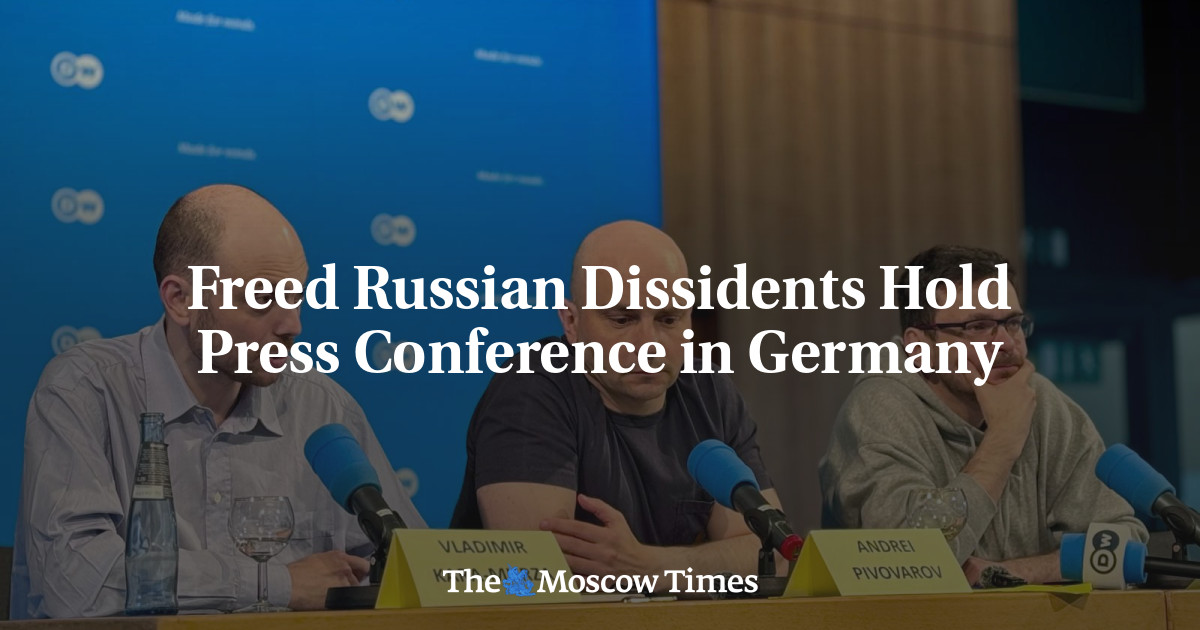BONN, Germany — Opposition figures Ilya Yashin, Vladimir Kara-Murza and Andrei Pivovarov, who were released this week as part of a landmark prisoner exchange between Russia and the West, held a press conference at the office of German news agency Deutsche Welle on Friday.
“We’re feeling indescribable feelings,” activist Andrei Pivovarov said at the start of the conference. “Some might say that not many people have been released… But many of my friends were just saved from death.”
Pivovarov, who used to head the pro-democracy group Open Russia, thanked everyone who was involved in negotiations for the release of political prisoners, including German Chancellor Olaf Scholz.
“I feel like I’m watching a movie,” activist Vladimir Kara-Murza said. “A week ago, I was in a cell. Yesterday I was at the Lefortovo pre-trial detention center. And now we were being driven here along the picturesque banks of the Rhine.”
“It is difficult to get rid of the surrealism of what is happening,” said Kara-Murza, who was freed from a 25-year prison sentence as part of the deal.
A total of 24 prisoners were exchanged at an airport in the Turkish capital Ankara on Thursday following long negotiations between Moscow and Washington, as well as other Western governments including Germany.
Among the Russian nationals released from prison were Memorial co-founder Oleg Orlov, former Navalny coordinators Lilia Chanysheva, Ksenia Fadeyeva and Vadim Ostanin, as well as artist Sasha Skochilenko. So, too, were dual Russian-German citizens Herman Moyzhes and Kevin Lik freed in the exchange.
Moscow, in its turn, received eight of its citizens, including Vadim Krasikov, a Federal Security Service (FSB) operative who was serving a life sentence in Germany for the 2019 killing of a former Chechen rebel.
“It’s hard to realize that you’ve been released because the killer has been released. It’s difficult,” opposition figure and former Moscow city councilman Yashin said, referring to Krasikov.
Yashin, who previously said he did not want to be involved in any potential prisoner swaps, was vocal about the fact he was included in this week’s historic exchange.
“From the first day behind bars, I said that I was not ready for exchanges. I publicly asked not to be included in the exchange lists,” he said. “This was my conscious position. I refused to leave Russia under threat of arrest.”
Yashin said he considered his transfer from Russia to be illegal.
According to the opposition figure, FSB officials told him right before leaving that if he ever tried returning to the country, Russia would not engage in any further exchanges of political prisoners held in the country.
“An FSB officer told me, ‘You can come back like Navalny. You can be arrested like Navalny. You can end up like Navalny,’” Yashin said.

